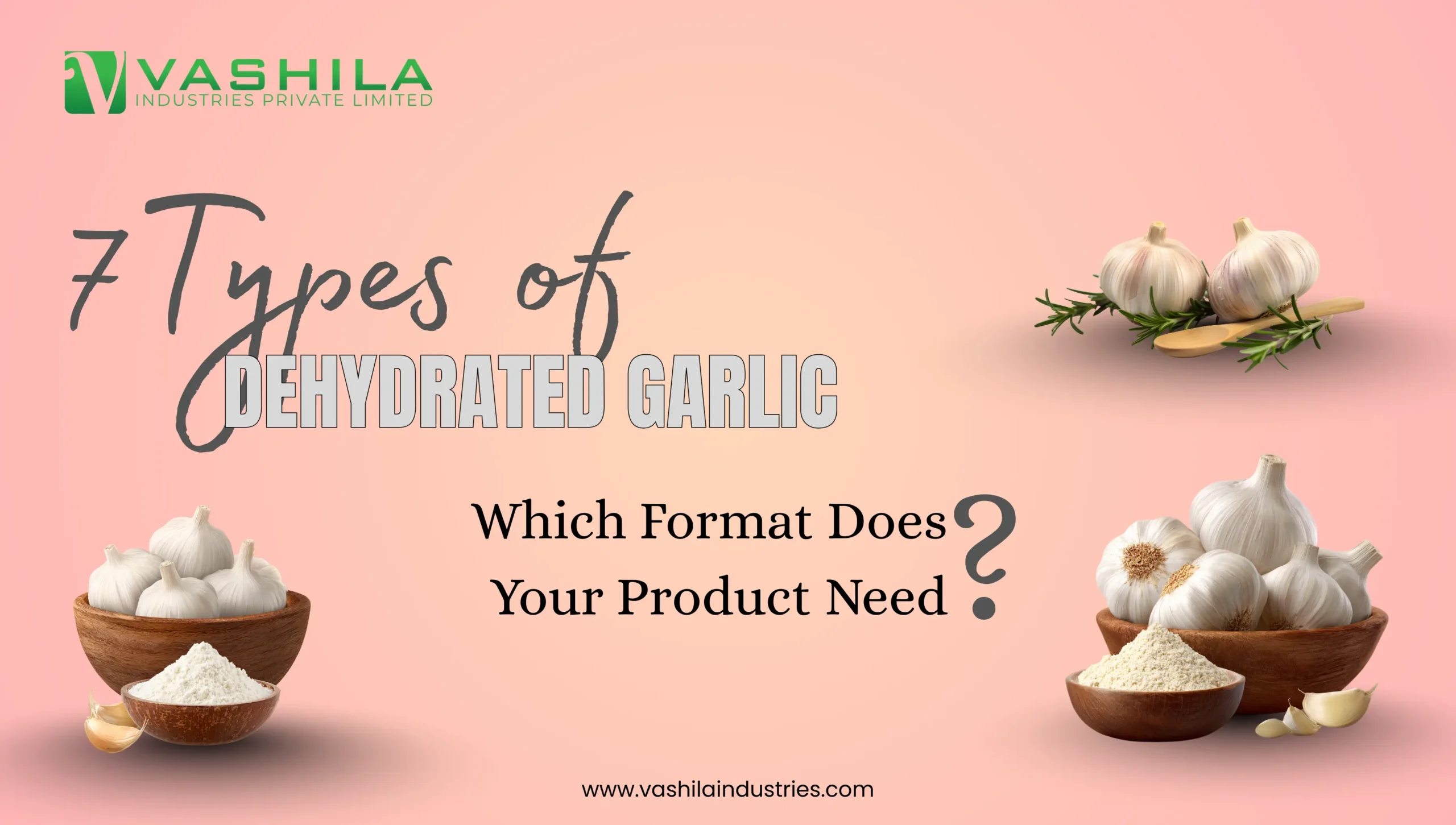Dehydration is one of the most widely used food preservation techniques in modern food processing. Beyond extending shelf life, a well-controlled dehydrating process helps retain flavor, structure, and functional performance—making it essential for industrial food ingredients.
This article explains the science behind food dehydration and why controlled processing is critical for consistent, export-ready products.
What Is Food Dehydration?
Food dehydration is the process of removing moisture from raw agricultural materials under controlled conditions. By reducing water activity, dehydration slows microbial growth and preserves the product for long-term storage.
In industrial processing, dehydration is not just about drying—it is about maintaining product integrity throughout the process.
Why Moisture Control Is Critical
Moisture content directly affects:
-
Shelf life
-
Texture and structure
-
Flavor concentration
-
Microbial stability
Excess moisture can lead to spoilage, while over-drying can damage structure and reduce usability. Precise moisture control ensures balance and repeatability.
How Dehydration Preserves Flavor and Structure
Controlled dehydration helps:
-
Concentrate natural flavors
-
Preserve cell structure
-
Reduce enzymatic activity
-
Improve rehydration performance
These factors are particularly important for ingredients used in blending, brewing, and further processing.
Common Industrial Dehydration Methods
Different food products require different dehydration techniques:
-
Hot Air Drying – Common for roots, vegetables, and bulk products
-
Low-Temperature Drying – Used to protect sensitive components
-
Controlled Batch Drying – Ensures uniform moisture reduction
The choice of method depends on the raw material and its end application.
Role of Dehydration in Chicory Processing
In chicory processing, dehydration prepares the root for consistent roasting and flavor development. Properly dried chicory:
-
Roasts evenly
-
Delivers stable bitterness
-
Maintains structural strength
-
Reduces processing losses
Dehydration quality directly influences final product performance.
Quality Control During Dehydration
Industrial dehydration requires continuous monitoring to ensure:
-
Target moisture levels
-
Uniform drying across batches
-
Prevention of contamination
-
Compliance with food safety standards
Quality checks at this stage reduce risks during downstream processing.
Why Dehydration Matters for Export-Grade Products
For export markets, dehydration plays a key role in:
-
Shelf-life stability
-
Transport safety
-
Packaging efficiency
-
Regulatory compliance
Consistent dehydration helps meet international buyer expectations.
Final Thoughts
The science behind food dehydration goes far beyond moisture removal. It is a precision-controlled process that supports quality, safety, and performance across food ingredient applications.
For manufacturers and buyers, understanding dehydration fundamentals builds confidence in sourcing decisions and product reliability.
Frequently Asked Questions
Does dehydration affect nutritional value?
Dehydration primarily removes moisture while preserving most structural and flavor properties.
Is dehydration better than chemical preservation?
Yes. Dehydration is a physical process and aligns with clean-label expectations.
Can dehydrated products be rehydrated?
Many dehydrated products are designed for effective rehydration during use.
Is dehydration used only for chicory?
No. It is widely used across fruits, vegetables, and root-based ingredients.






